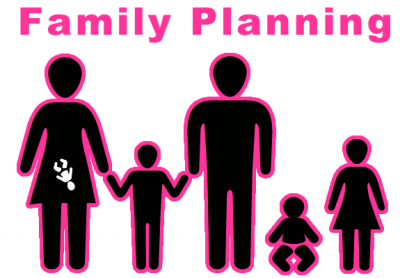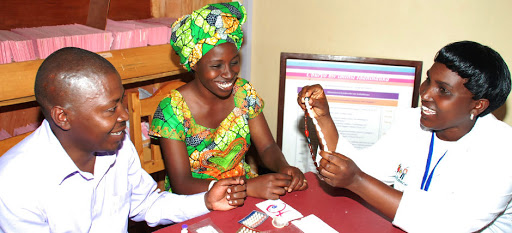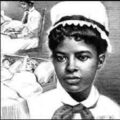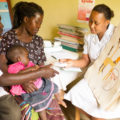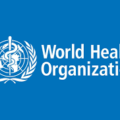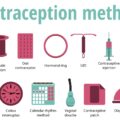Family planning is one of the 10 great public health achievements of the 20th century. According to the World Health Organization (WHO), family planning is defined as “the ability of individuals and couples to anticipate and attain their desired number of children and the spacing and timing of their births. It is achieved through use of contraceptive methods and the treatment of involuntary infertility”.
The fertility rate in Nigeria is estimated to be 5.4, implying that the average woman can expect to have that many children during her lifetime. Nigeria is the most populous country in Africa, with more than 200 million people; it also has a high annual rate of population growth (3.5%). Additionally, the country has relatively high levels of infant mortality (104 infant deaths per 1,000 live births) and maternal mortality (800 maternal deaths per 100,000 live births). In response to these and other serious demographic and health issues, the Nigerian government put into effect a national population policy in 1989 that called for a reduction in the birthrate through voluntary fertility regulation methods compatible with the nation’s economic and social goals.
Government of Nigeria works with key stakeholders to address socio-cultural norms such as preference for large families, religious tenets, and women’s lack of decision-making power related to sexual and reproductive health. On course to devolve the financing of its national family planning program to the state level, improve the availability of and access to services and commodities, and slow the rate of its population growth.
Nigeria is on the path to a healthier future for women and families. The focus is on dispelling myths and misconceptions about family planning, expanding the provision of FP services and supplies to the last mile, and enabling an environment in which women and girls make informed choices on their health. Family planning services in Nigeria include:
- Contraceptive services
- Pregnancy testing and counseling
- Pregnancy–achieving services including preconception health services
- Basic infertility services
- Sexually transmitted disease services
- Broader reproductive health services, including patient education and counseling
- Breast and pelvic examinations
- Breast and cervical cancer screening
- Sexually transmitted infection (STI) and human immunodeficiency virus (HIV) prevention education, counseling, testing, and referral. SEE:Types of Family Planning Methods In Nigeria
Factors Affecting the Accessibility and Acceptance Of Family Planning In Nigeria
In Nigeria, women with lower levels of education and income are less likely to have access to family planning services. In addition, men are less likely to have access to and receive family planning services than women. Factors affecting the acceptance of family planning in Nigeria include:
Culture and Religion
Religion is embedded in the culture of all societies. It influences matters of morality, ideology, and decision making, which concern every human being at some point in their life. Although the different religions often lack a united view on matters such as contraception and abortion, there is sometimes some dogmatic overlap when general religious principles are subject to the influence of local customs.
Studies have shown that higher religious attendance is linked to less favorable opinions about contraception. Catholic affiliation is not consistently associated with family planning opinion, and we find mixed results for conservative Protestants. Born again and fundamentalist Christians have less positive opinions about contraception, generally, whereas evangelical identity is linked to negative views on family planning policy. These findings contribute to knowledge about the relationship between religion and family planning attitudes and the broader social influences of religious self-identification.
The findings of a study, led by the Johns Hopkins Center for Communication Programs and its Nigeria Urban Reproductive Health Initiative (NURHI), underscore the outsized role played by religious leaders in whether modern contraception is considered taboo or acceptable. Women in Nigeria whose clerics extol the benefits of family planning were significantly more likely to adopt modern contraceptive methods, the new research suggests, highlighting the importance of engaging religious leaders to help increase the country’s stubbornly low uptake of family planning services.
Cost of services: Poverty has risen in Nigeria, with almost 100 million people living on less than a $1 (£0.63) a day, despite economic growth, statistics have shown. The National Bureau of Statistics said 60.9% of Nigerians were living in “absolute poverty” The cost of family planning in Nigeria is prohibitive, especially for most rural women,for example, The traditional copper IUD costs between N500- N1,500 naira in government hospitals and N2,000- N3,000 in private hospitals. Paraguard IUD is #5,000 and Mirena is #22,000 naira. Female condom: #2500 to #3,000 naira per pack.
Lack of Publicly funded Family Planning services: Health care in Nigeria is poorly funded. Poor funding has been the bane of public family planning programs in Nigeria. Nevertheless, there is growing attention towards the implementation of pro-poor health care financing strategies in Nigeria as a way to achieve universal health coverage (UCH). This is to improve widely documented poor health outcomes in a health system characterized by limited public spending on health and catastrophic out-of-pocket (OOP) expenditure.
Limited access to insurance coverage: Access to affordable healthcare continues to be a challenge for most Nigerians due to high levels of poverty and significant reliance on out of pocket payments. Health Insurance coverage throughout the country has barely scratched the surface in terms of the country’s population, the National Health Insurance Scheme of Nigeria had achieved less than 5% coverage in 2 decades. This has affected family planning access in Nigeria, especially the limited access to health insurance for rural dwellers who constitute a significant portion of the population.
Location of Family Planning Clinics
Another major factor affecting the accessibility and acceptance of family planning in Nigeria is the geographical location of a family planning clinic locations and hours that are not convenient for clients. In order to effectively meet the family planning needs of a community, the location and working hours of a family planning clinic must take the working of the community they serve into cognizance. SEE: History of Family Planning In Nigeria

